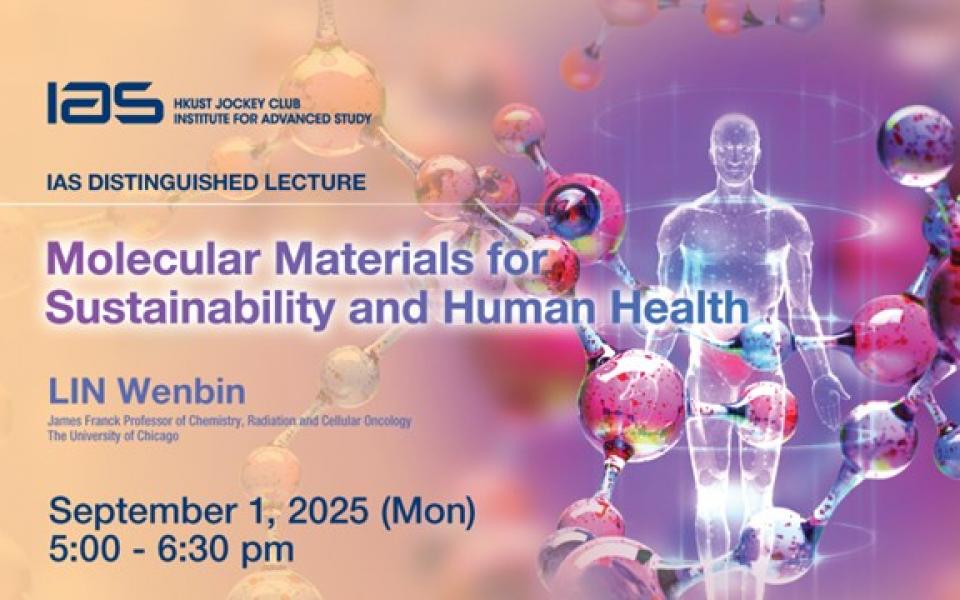IAS Distinguished Lecture - Molecular Materials for Sustainability and Human Health
Supporting the below United Nations Sustainable Development Goals:支持以下聯合國可持續發展目標:支持以下联合国可持续发展目标:
Abstract
Over the past three decades, the field of molecular materials has seen remarkable advances, giving rise to structurally diverse and functionally tunable platforms. Among these, crystalline materials such as metal–organic frameworks (MOFs) and covalent organic frameworks (COFs) have attracted significant attention due to their modular construction, synthetic versatility, and precise control over composition, topology, and function. These attributes enable the rational design of molecular materials to tackle key challenges in sustainability and human health.
In this presentation, the speaker will highlight his research team's recent efforts at the interface of molecular design and application. For sustainability, they have developed MOF- and COF-based solid catalysts with atomically precise active sites and cooperative functionalities. These materials enable selective and efficient transformations relevant to fine chemical synthesis and solar-to-chemical energy conversion. By tuning the local electronic and geometric environments, they unlock new reaction pathways and achieve high turnover under mild conditions.
In the biomedical arena, the speaker and his research team have engineered nanoscale MOFs and related materials that combine multiple therapeutic modalities—including chemotherapy, radiotherapy, photodynamic therapy, and immunotherapy—within a single nanoplatform. These multifunctional materials show strong synergistic effects in preclinical models, promoting both tumor elimination and immune activation. The speaker will also present early clinical data from the first MOF-based therapeutic to enter human trials, underscoring their translational promise and safety profile.
Together, these studies demonstrate how precise molecular-level control in crystalline frameworks can drive the development of transformative technologies for sustainability and human health.
About the Speaker
Prof. LIN Wenbin received his BS from the University of Science and Technology of China in 1988 and his PhD from the University of Illinois in 1994. He was a National Science Foundation Postdoctoral Fellow at Northwestern University (1994-1997), and a faculty at Brandeis University (1997-2001) and the University of North Carolina at Chapel Hill (2001-2013). He joined the University of Chicago in 2013 and is currently the James Franck Professor of Chemistry, Radiation and Cellular Oncology. He is also a member of the Comprehensive Cancer Center and the Ludwig Center for Metastasis Research there.
Prof. Lin’s research focuses on the design of molecular materials for sustainability and human health. He has published over 470 peer-reviewed articles, which have been cited more than 85,000 times. Notably, his lab pioneered the development of nanoscale metal–organic frameworks and coordination polymers for biomedical applications. Several of these nanomaterials have advanced to clinical trials.
Recognized as one of the most highly cited chemists since 2014, Prof. Lin was also named among the top 10 chemists of the 1999–2009 decade based on citations per article. He is the founder of two clinical-stage biopharmaceutical companies and has received numerous honors for his contributions to functional molecular materials. He is an elected Fellow of the American Association for the Advancement of Science, the American Institute for Medical and Biological Engineering, the National Academy of Inventors, and the European Academy of Sciences.
For Attendees' Attention
Seating is on a first come, first served basis.
